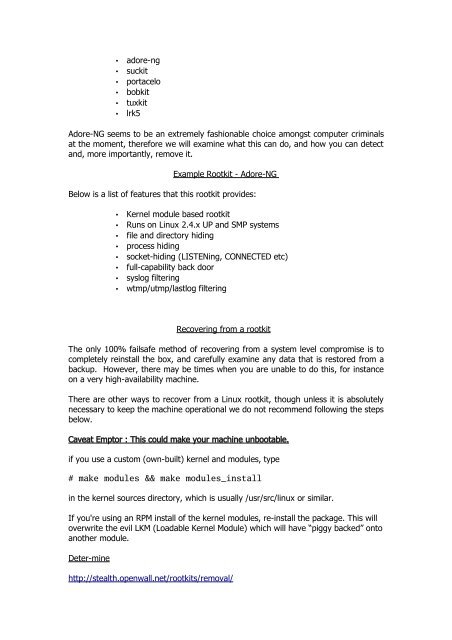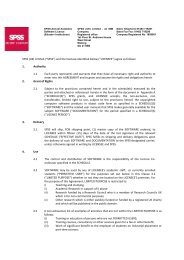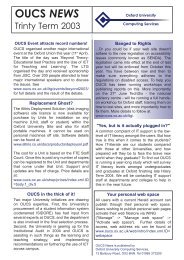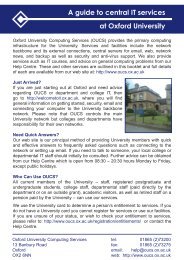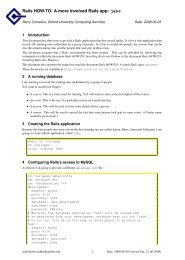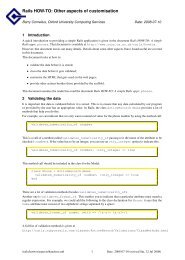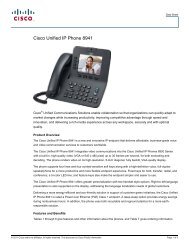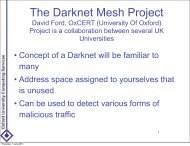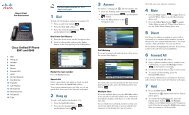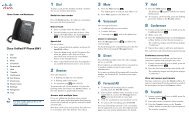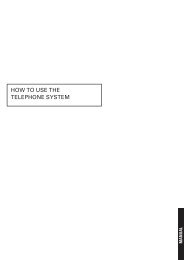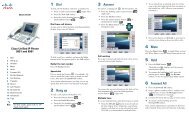Checking UNIX/LINUX Systems for Signs of Compromise - UCL
Checking UNIX/LINUX Systems for Signs of Compromise - UCL
Checking UNIX/LINUX Systems for Signs of Compromise - UCL
You also want an ePaper? Increase the reach of your titles
YUMPU automatically turns print PDFs into web optimized ePapers that Google loves.
• adore-ng<br />
• suckit<br />
• portacelo<br />
• bobkit<br />
• tuxkit<br />
• lrk5<br />
Adore-NG seems to be an extremely fashionable choice amongst computer criminals<br />
at the moment, there<strong>for</strong>e we will examine what this can do, and how you can detect<br />
and, more importantly, remove it.<br />
Example Rootkit - Adore-NG<br />
Below is a list <strong>of</strong> features that this rootkit provides:<br />
• Kernel module based rootkit<br />
• Runs on Linux 2.4.x UP and SMP systems<br />
• file and directory hiding<br />
• process hiding<br />
• socket-hiding (LISTENing, CONNECTED etc)<br />
• full-capability back door<br />
• syslog filtering<br />
• wtmp/utmp/lastlog filtering<br />
Recovering from a rootkit<br />
The only 100% failsafe method <strong>of</strong> recovering from a system level compromise is to<br />
completely reinstall the box, and carefully examine any data that is restored from a<br />
backup. However, there may be times when you are unable to do this, <strong>for</strong> instance<br />
on a very high-availability machine.<br />
There are other ways to recover from a Linux rootkit, though unless it is absolutely<br />
necessary to keep the machine operational we do not recommend following the steps<br />
below.<br />
Caveat Emptor : This could make your machine unbootable.<br />
if you use a custom (own-built) kernel and modules, type<br />
# make modules && make modules_install<br />
in the kernel sources directory, which is usually /usr/src/linux or similar.<br />
If you're using an RPM install <strong>of</strong> the kernel modules, re-install the package. This will<br />
overwrite the evil LKM (Loadable Kernel Module) which will have “piggy backed” onto<br />
another module.<br />
Deter-mine<br />
http://stealth.openwall.net/rootkits/removal/


